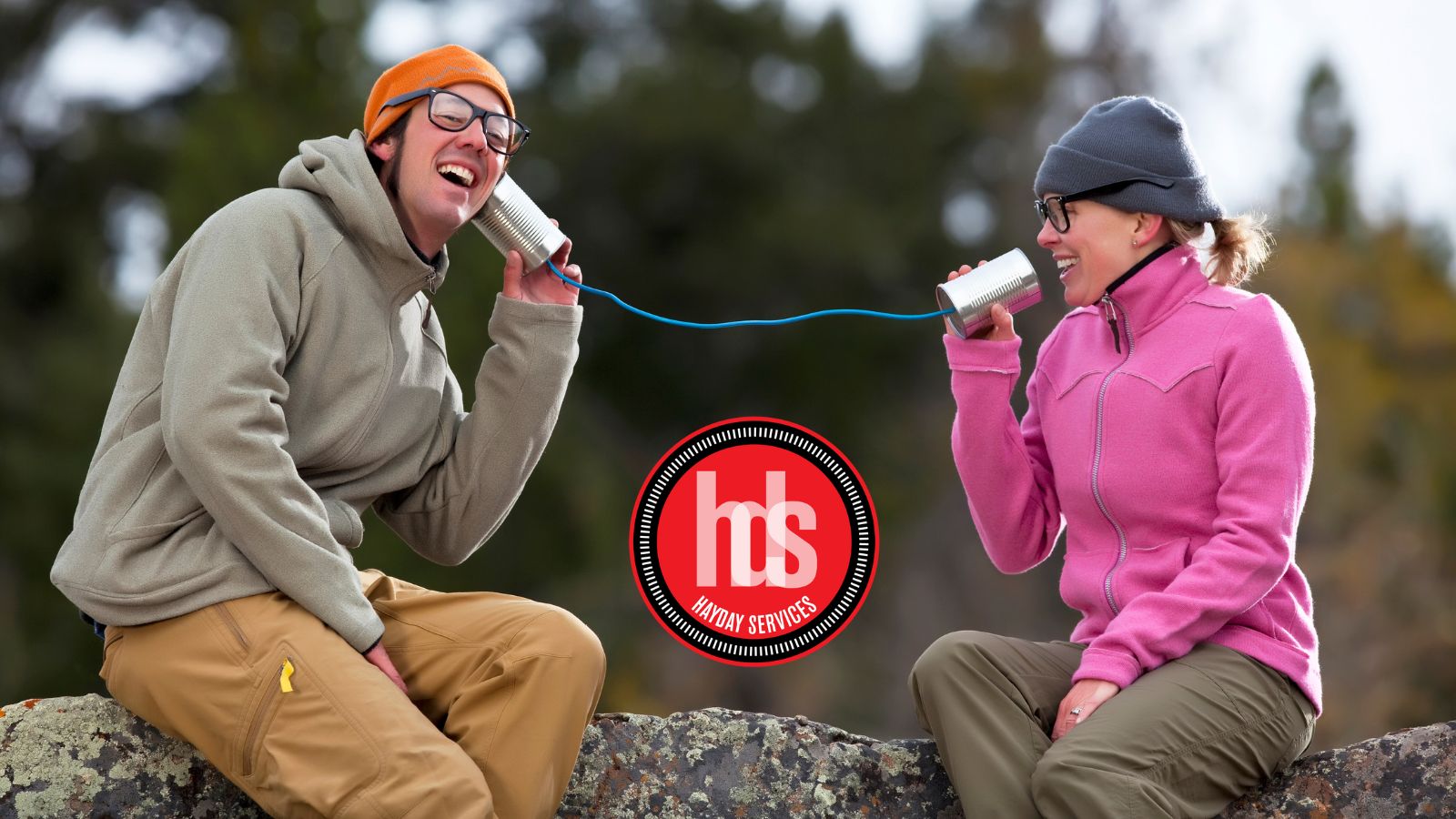If you’ve spent more than 10 minutes talking grants with me, I’ve said that 80% of grant writing is not about actual writing. Communication skills play an essential part in 80% of non-writing. That’s why Amanda and I were thrilled to kick off Season 8 (!) of the Fundraising HayDay Podcast with a fascinating and fun interview with Communication Guru Michelle Gladieux on-site in Denver at the Grant Summit powered by the Grant Professional Association. Take a listen HERE.
Besides working with my fabulous cohost, Amanda Day, one of the many things I love about the podcast is learning and getting fresh perspectives. After 25+ years in the grants field, the best thing I can do for my trainees and clients is to keep growing my knowledge.
Having worked as a corporate trainer and university professor, Gladieux shared practical wisdom that’s especially helpful for grant professionals navigating day-to-day communication challenges. Here are some highlights of our interview that resonated with me:
Embracing Imperfection
I was brought up to believe that doing everything right was the right thing to do—what could possibly go wrong with that baseline value? Spoiler Alert: a lot because no one is perfect. Setting impossibly high standards can burn you out and make you challenging to work with—and by “you,” I mean me.
Gladieux shared that she had to trash over 1,000 printed materials for the 2024 Grant Summit because of one wrong word (“retreat” instead of “summit”). While she did order a costly reprint, she also moved past the mistake within five minutes – showing how to maintain quality while accepting that we all make mistakes. She pushed back against job postings asking for “100% perfection” from grant writers, pointing out that it’s simply unrealistic.
Reading the Room
Whether you’re on a Zoom call with a client, presenting potential grant opportunities to board members and senior leaders, or meeting with program staff to retrieve some key outcomes data, reading the room and communicating accordingly is critical to moving forward relatively stress-free with grant seeking and administration.
It would be lovely, if somewhat dull if everyone acted exactly like you in meetings, the workplace, or life in general. Here are four key takeaways that Michelle offered to self-monitor, especially during key interactions:
1. Pay attention to how much you’re talking in different situations
2. Make space for others to share their thoughts
3. Find the sweet spot between being direct and diplomatic
4. Notice when others start to withdraw from conversations
Drawing from her years of teaching, Gladieux mentioned how she stops “50 times during four hours to invite comments, questions.” She suggests thinking about talking time in percentages: “maybe 50% when you’re meeting with your employee for a performance review… maybe 30% when you’re interviewing someone.”
Gladieux reminds us that becoming better at communication takes time and practice. She said, “These behaviors we pick up as communicators… we can choose what to keep and what to kick to the curb.” For grant professionals working with funders, colleagues, and partners, these communication tips offer practical ways to be more effective while staying true to yourself.
Kimberly Hays de Muga, GPC, is an expert trainer and coach in nonprofit capacity building, grant writing, fundraising, and board development. She brings more than 25 years of fundraising experience that includes raising $100 million from individuals, foundations, corporations, and local, state, and federal funding for nonprofit agencies in the education, health, and human service sectors—from food banks to pediatric hospitals, to state-wide mental health coalitions.
Latest posts by Kimberly Hays de Muga
(see all)



